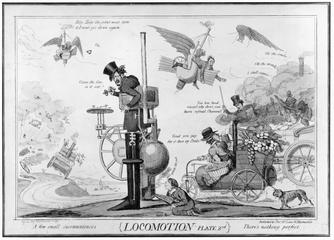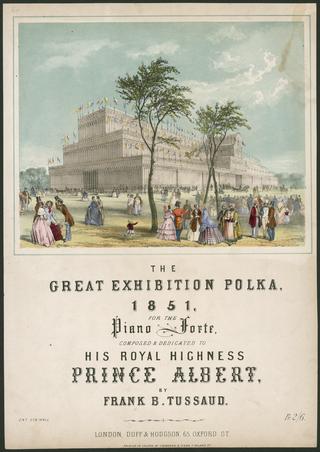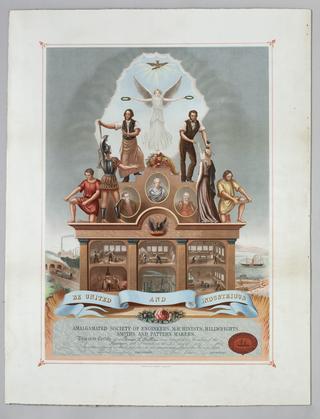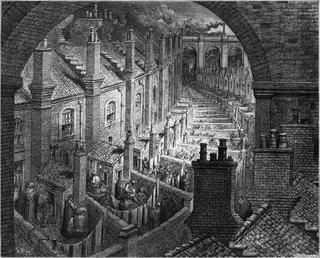
Diapositives of photographs of sunspots taken by Elizabeth Beckley with the Kew Photoheliograph
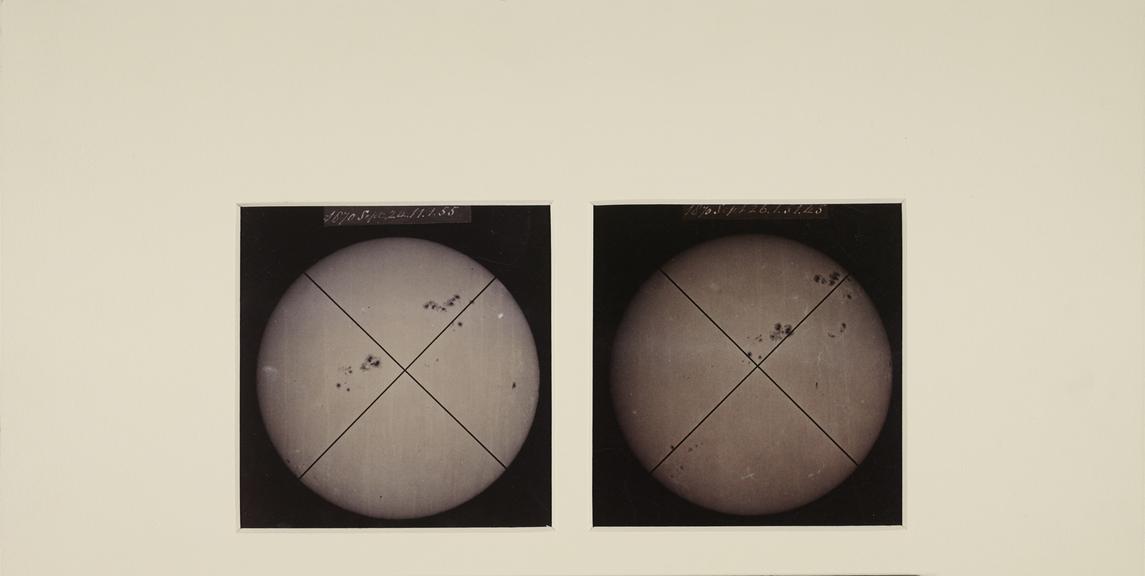
2 photographs of sunspots (Nos.16 & 17) of the 39 taken on the photoheliograph at Kew Observatory by Elizabeth Beckley in 1870, Sept 21-24, 26-29.
This series of thirty-nine photographs was taken at Kew Observatory in September 1870 (21-24 and 26-29) by Elizabeth Beckley. She used the Kew Photoheliograph – the first instrument designed specifically to photograph the Sun. They show sunspots moving across the solar surface as the Sun rotates, with the dates and times recorded at the top of each image.
Money was tight at Kew and so Beckley, the teenage daughter of the observatory’s mechanical engineer, was employed cheaply to take daily photographs of the Sun. She went on to work at Kew for over ten years and was one of the first female employees of an astronomical observatory. The Kew astronomer Warren De La Rue praised her ability to capture photographs ‘even on very cloudy days, when it would be imagined that it was almost impossible’. Detailed analysis of photographs by Beckley and other ‘lady computers’ around the world would go on to be fundamental to astronomical work.
The photograph were given to the museum by Beckley's daughter, Mrs E Whipple, in 1982.
Details
- Category:
- Art
- Object Number:
- 1982-684/3
- Materials:
- paper (fibre product)
- Measurements:
-
overall: 125 mm x 110 mm
- credit:
- Mrs E Whipple

